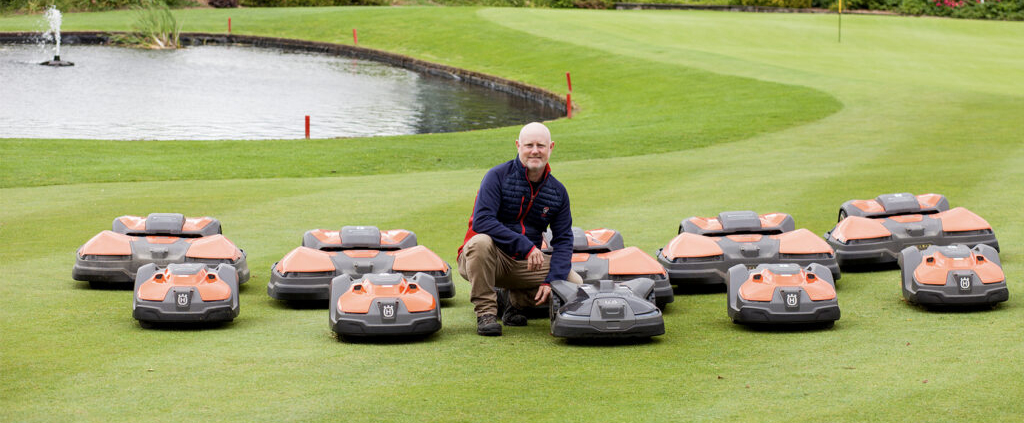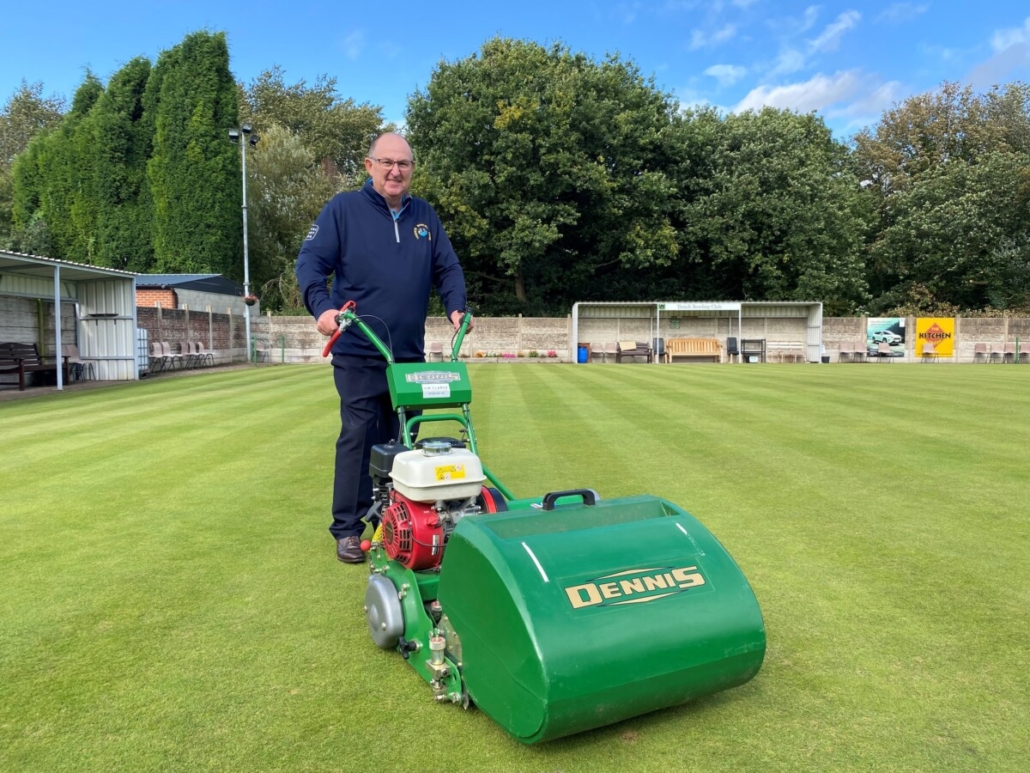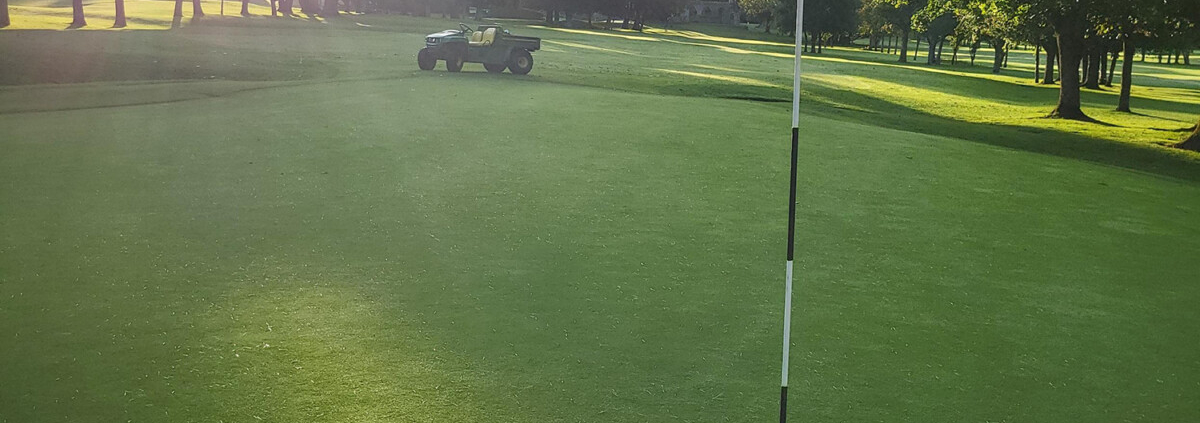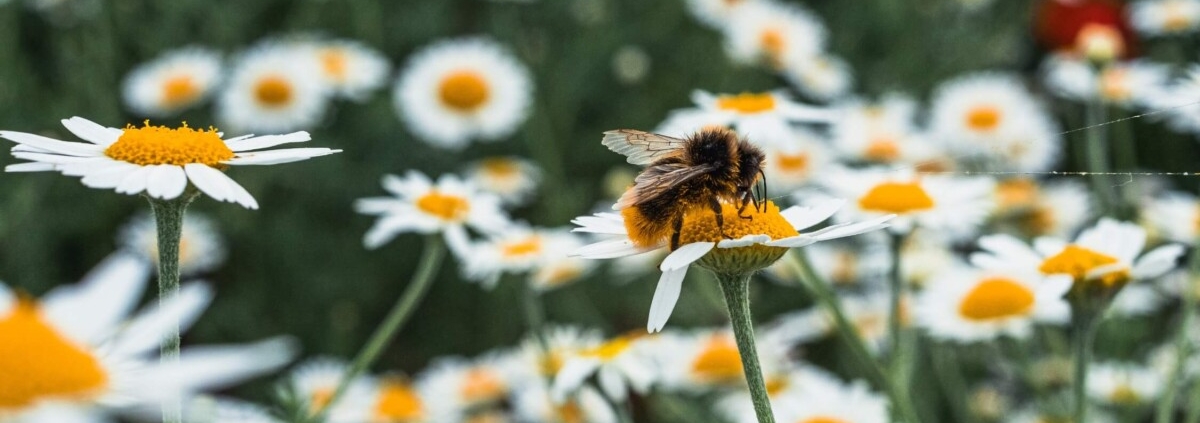Carus Green Golf Club becomes fully automated
Carus Green Golf Club becomes fully automated: Carus Green Golf Club, a popular golf club in the North of England, is now reaping the rewards of automation, thanks to the installation of a fleet of Husqvarna professional robotic lawnmowers.
The 18-hole course, located on the outskirts of the Lake District, embarked on its automation journey back in August 2023, following a demonstration of the Husqvarna CEORA™ on its driving range. Since then, the club has bought into the technology and rapidly scaled up its fleet of robotics to ten machines altogether; five Husqvarna CEORA™, four Husqvarna Automower® 550 EPOS™ and one Automower® 430X NERA.
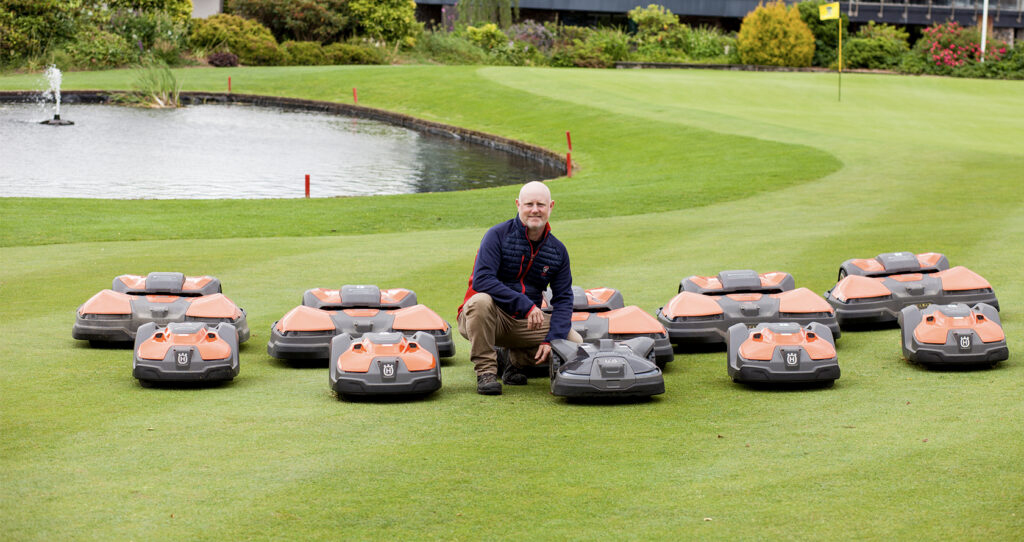
Carus Green Golf Club becomes fully automated
Here, Husqvarna speaks to Warren Bevan, Course Manager at Carus Green, about the club’s robotics journey so far, and how they’re benefitting from full automation.
Tell us a bit about how your robotics journey with Husqvarna began?
“We initially had a demo of CEORA™ on our driving range and were instantly impressed. Both myself and Graham Curtin, owner of the golf course, quickly noted the quality of the cut and finish and wanted to invest in the technology and expand it onto the course itself. We’ve always been progressive and forward thinking in our approach to new ideas and technology, and after a short demonstration, it became apparent that robotics was absolutely the path we needed to explore.”
How long did it take to scale up to ten units?
“Following the demonstration, we initially started with one CEORA™ and one Automower® 550 EPOS™ which together managed one area of the course that included four fairways with some semi-rough. This allowed us to observe the machines and plan their usage across the full course. The time period from implementing those first machines to rolling a full fleet of mowers out across our whole course was approximately six months – a quick transition but we haven’t looked back. It took some time to get all the necessary infrastructure and electrics installed, but nine months later we’re enjoying the benefits of being fully automated on all fairways, rough and approaches.”
How do the robotic mowers operate on a daily basis?
“Four of the five CEORA™’s are cutting the fairways at a 10mm cutting height; and those machines cut overnight, every night, whilst the course is closed so as to not interrupt the golfers. The machines will then recharge before automatically changing their cutting height and commencing the rough cutting during the day at 60mm.The four Automower® 550’s are cutting the ‘carrys’ from tee to fairway around the clock on a 24 hour cycle. The last CEORA™ maintains our driving range split into different zones and can cut the full range over the space of 48 hours, which has eliminated significant hours of labour a week for our team who can now focus on other tasks in that time. The last machine, the Automower® 430X NERA cuts an area just in front of the clubhouse.”
How has the feedback been from members and staff?
“The feedback we received from the members was overwhelmingly positive, with many noting the improvements in the quality of the finish, and in particular the edge of the fairways which are now immaculately maintained due to the mower’s GPS navigation system. Members also commented on the reduction in noise pollution as well as the absence of tyre marks which our former ride-on mowers sometimes caused during wet conditions.
“The feedback from our Greenkeeping team has also been really positive, with many of our staff now able to dedicate more time to take on and complete jobs we didn’t previously have capacity to do as often as we’d like, such as edging bunkers, which has now increased from once every two weeks to once a week.”
How has automation helped overcome industry challenges?
“There are two main issues that robotics have helped us to overcome. The industry is currently navigating changes to the climate, with more frequent wet days making maintaining the quality of the cut typically difficult, however, robotics really help overcome these challenges, as they can cut in any condition, whereas a conventional ride-on mower simply can’t. This year, we were able to mow the course throughout March and April, which we haven’t been able to do in previous years.
“The other challenge robotics has helped us to overcome is the labour shortage. The industry is experiencing a huge drop off in the number of greenkeepers, and robotics has not only helped plug this gap but has also freed up staff to do jobs that they previously didn’t have time to do.”
What led you to choose Husqvarna over other similar brands?
“When we were in the early stages of our robotics journey, we had a demonstration with a competitor brand, however the competitor’s machine didn’t leave the same quality finish or cut low enough on the fairways compared to CEORA™. This, combined with the level of service, enthusiasm and support from the Husqvarna team ultimately led us to become a valued partner. Since introducing the fleet of machines, we haven’t needed to use our traditional fairway mower at all.”
“I also like that Husqvarna are conducting further research into turf health and plant response from being cut with their robotic mowers.”
About Husqvarna CEORA™
CEORA™ is the ultimate solution for greenkeepers. The machines have an automatic cutting height adjustment system, meaning they can operate on fairways, semi-rough and rough, as well as other course areas, at cutting heights from 10 to 60mm. With a capacity of 20,000–25,000m2 per day, CEORA™ can cover an area of up to three regular-sized fairways every day and night.
For more information on Husqvarna visit www.husqvarna.com/uk
For the latest industry news visit turfmatters.co.uk/news
Get all of the big headlines, pictures, opinions and videos on stories that matter to you.
Follow us on Twitter and Instagram for fun, fresh and engaging content.
You can also find us on Facebook for more of your must-see news, features, videos and pictures from Turf Matters.

